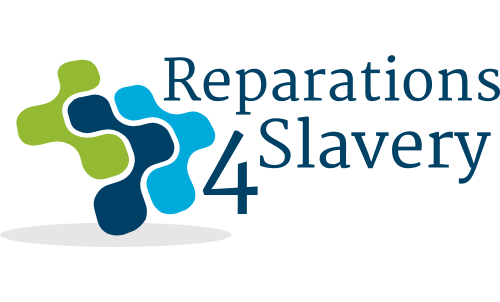Juneteenth: A Holiday for the Ancestors and Us

Lift ev’ry voice and sing
The Black/Negro National Anthem
‘Til earth and heaven ring
Independence. Freedom.
If I were to invoke these words to describe a holiday, you would think I was referring to July 4, 1776. Nope. I’m referring to June 19, 1865. Juneteenth.
Ring with the harmonies of Liberty
The Emancipation Proclamation was issued in September 1862, effective January 1863. The 13th Amendment passed Congress in January 1865 and was ratified in December of the same year. Juneteenth is the time African Americans celebrate our release from the bonds of chattel slavery.
Let our rejoicing rise
High as the list’ning skies,
Now, it isn’t lost on me how quickly white men realized they could criminalize Black bodies as a clandestine way to continue slave labor after emancipation.
It isn’t lost on me that the Ku Klux Klan was founded a mere two and a half weeks after ratification.
It isn’t lost on me that it “somehow” took two and a half years for the notice of emancipation to reach what is now Texas, the notification from General Granger ultimately coming to symbolize the outcome so many in the South had feared.
Let it resound loud as the rolling sea
Sing a song full of the faith that the dark past has taught us,
Sing a song full of the hope that the present has brought us,
While chattel slavery was abolished in 1863, a more insidious form of slavery still exists today, codified into our criminal justice system, “as punishment for crime.” We all know how much people – private individuals and those who swear to uphold justice – love to punish the Black body. We needn’t look any further than the interactions with law enforcement and even private citizens, that regularly go viral. From the Fugitive Slave Acts to the Slave Codes, from the Black Codes to the school-to-prison pipeline, Black bodies in America have yet to be truly set free.
Like many Americans, I grew up hearing stories about my ancestors. But when your ancestors are Black, they include harrowing experiences of institutional racism. My grandfather’s experience integrating our police department is especially telling, given the recurrence of national headlines showcasing deliberate police violence over the years.
Facing the rising sun of our new day begun
Let us march on ’til victory is won.
Going further back, my great-grandparents’ stories, handed down over generations, are also typical of the Black experience in America.
In the 1860s, my maternal 3rd great grandparents had just been born. The earliest record of some of them is the 1880 census. By 1930, some of my ancestors were listed on the census as farmers, like my maternal great grandfather. However, the land was not his own. He was a sharecropper.
What is sharecropping, you ask? I call it slavery 2.0.
When you look closely at the other columns of the census records, you see that he was working 60-hour workweeks, worked every week of the year, and received an income of zero dollars. The census data also confirmed stories passed down by my great aunts and uncles: every ten years the census showed them living on and tilling a different parcel of land, made to move every few years, just shy of the threshold of entitlement to owning the land.
My mother’s paternal male relatives were listed as oystermen, doing what would now be viewed as, “honest, blue-collar work” in the heart of the city. These days, downtown Annapolis is predominantly white, commodified, and filled with over-priced private businesses. Everyone wants a beautiful waterfront property, or to be within a, “stone’s throw” of the bay. Interesting how times have changed; how many of us grew up with family stories of, “white people’s disgust” about the smell of the docks, and the Negroes working there?
Stony the road we trod,
Bitter the chastening rod,Felt in the days when hope unborn had died;
In the 1860s, my paternal 2nd great grandparents had also just been born. Researching that side of my family has proved extremely difficult. Finding additional relatives without access to white family-held slave manifests and property books is exceedingly hard. Even linking the right white men to my maternal ancestors is more difficult than anticipated. They, of course, didn’t marry my “mulatto” ancestors, so there aren’t any marriage certificates to be found, and they aren’t listed together on the census. Yet another brick wall. Genealogy is fun – until you see your grandfather listed in a separate category as a “hired hand.”
Yet with a steady beat,
Have not our weary feetCome to the place for which our fathers sighed?
Juneteenth ushered in new possibilities for the previously enslaved, though the shadow of slavery’s legacy remained. While our ancestors may have been grateful for the call to freedom that occurred on June 19, 1865, how many wondered, “Where do we go from here?” How many were grateful for their newfound freedom, but fearful of being shackled once again?
We have come over a way that with tears has been watered,
We have come, treading our path through the blood of the slaughtered
Black people have been waiting for our, “40 acres [and a mule],” since General Sherman issued the order in January 1865. For a few months, forty thousand newly freedmen actually received the four hundred thousand acres on which Lincoln signed off. We were even lent the mules! And yet, in typical fashion, President Johnson, Lincoln’s successor, rescinded the order – and returned the land to white plantation owners.
Out from the gloomy past,
Till now we stand at last
Where the white gleam of our bright star is cast.
This Juneteenth, our nation is actively reeling against a backdrop of violence and national mourning. As we celebrate, we cannot forget that we as a people are only nominally free.
This Juneteenth we celebrate what was, what should have been, and – if we continue the fight for true liberation – what can be.
God of our weary years,
The Black/Negro National Anthem
God of our silent tears,
Thou who has brought us thus far on the way;
Thou who has by Thy might Led us into the light,
Keep us forever in the path, we pray.
Lest our feet stray from the places, our God, where we met Thee,
Lest, our hearts drunk with the wine of the world, we forget Thee;
Shadowed beneath Thy hand,
May we forever stand.
True to our God,
True to our native land.
By James Weldon Johnson and John Rosamond Johnson
Micro-Reparations
What’s a micro-reparation? It’s the opposite of a micro-aggression: a simple way for white people to show solidarity and advocate for the well-being of African Americans, while we all work to effect long term social change.
Consider partnering with any of these projects or organizations to make reparations to African Americans, who have been deeply affected by the pandemic, and police brutality in the wake of George Floyd’s murder. Start today!
Provide Support for National Reparations Campaigns:
Fund For Reparations NOW! – FFRN! is the white ally initiative of NAARC
National African American Reparations Commission – united in a common commitment to fight for reparatory justice, compensation and restoration of African American communities
Provide Personal Support During the Pandemic:
Reparations Requests and Offerings – a Face Book group dedicated to direct repair; consider responding to direct requests or in common-needs pools for things like housing or diapers.
Modmin Tip Pool – funds RRO’s volunteer admin team
Shelter Pool – funds shelter for people experiencing homelessness
Parent Pool – funds supplies like diapers and other parent essentials
LGTBQ+ Pool – funds supplies like binders and other LGTBQ+ needs
Vox Noire COVID-19 Fund – Voix Noire is a safe space for Black women, marginalized genders and children to seek and receive assistance via reparations from non-Black individuals
Provide Bail, Mutual Aid and Legal Support to Protesters
The Bail Project – Working toward a just criminal justice system, fund provides bail to pre-trail detainees
NAACP Legal Defense Fund – Supporting voting rights, criminal justice reform, educational equity and economic justice.
Act Blue – Split a donation between 70+ community bail funds, mutual aid funds, and racial justice organizers.
Is this philanthropy? No, it’s repair: a distinction all white people need to grapple with in regard to deploying our resources, whether intentionality, time or money
